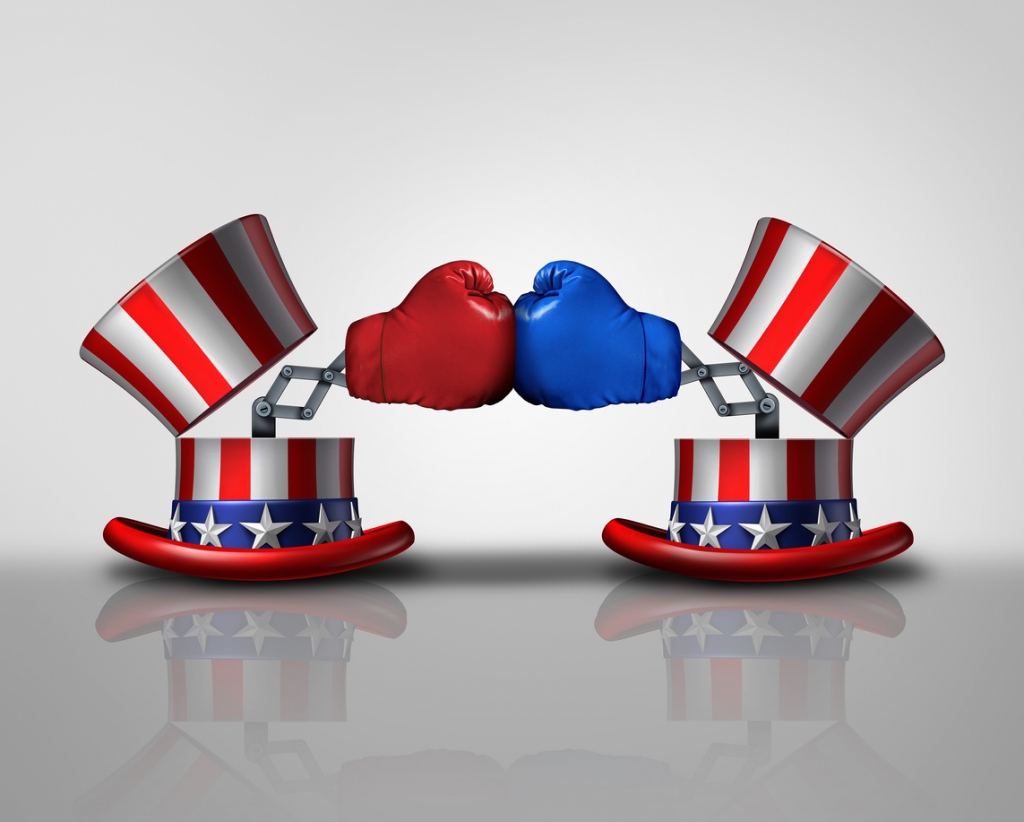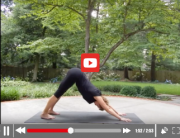pro
Are you one of those rare people who hasn’t had an argument with someone about politics?
How about someone close to you? Like maybe your spouse or partner?
When it comes to politics, there’s not much that my husband and I agree on.
And we’re by no means the only ones.
According to a recent Pew report, political affiliation has become the primary marker people use to decide who they want to associate with.
The study found that your politics is far more important than your age, race, ethnicity, gender, educational attainment, and religious affiliation in determining whether you like someone and want to hang out with them.
On top of that, people today feel freer to treat those with differing political views with ridicule, contempt, and even aggression, according to a Stanford study.
Wow. I guess that puts it in perspective. No wonder my husband and I have found our conversations “contentious” at times.
Here’s the good news: Our political views haven’t changed. How I handle the differences in our views has changed.
It hasn’t been easy. And I’m a marriage therapist.

I know the research.
When a conversation begins on a negative note, there’s a 96% chance that it will end on a negative note. Marriage researcher John Gottman calls it the “harsh startup.”
And it doesn’t take long to make that very accurate prediction. Gottman says you can tell within the first three minutes of the conversation.
Here’s the thing…
What if you don’t realize how negative you’re feeling? What if you think you’re calmer and more rational than you actually are? The three-minute negativity timer is ticking, but you don’t hear it… until it’s way too late to walk things back.
If you can relate to this, take heart. The way this triggering thing works is quite subtle. That’s what makes it so lethal.
The first time I avoided getting triggered by a political discussion, I was hooked.
I did something different and it changed everything.
The triggering event was very innocent and totally random. I happened to walk into the room as my husband was watching the news. Not a political show, just the news.
As I walked in front of our big-screen TV, I found myself within three inches of one of my most polarizing political figures.
I startled slightly, quickly recovered, and walked through the room without saying a word. No big deal, right?
But this time was different. As soon as I got around the corner, I uncharacteristically paused.

1. Pause and pay attention.
That brief pause may sound like a nothing-burger, but it wasn’t. It was a split-second game-changer. Here’s why:
The pause created a chance for me to slow down enough to actually pay attention.
The pause prevented me from going my usual route of ignoring what was happening. (Hint: Ignoring can be a lame attempt at emotional regulation. It often doesn’t work very well.)
The biggest problem with ignoring is that it’s something that happens in your mind. Meanwhile, your body and emotions are doing something very different.
Psychologists call it the “triangle of experience.” Like it or not, we humans constantly go around in a “triangle of experience” of physical sensations, emotions and thoughts, all playing off each other.
I had entered my own personal Bermuda triangle of experience.
Only this time, I was paying attention to what it felt like. I was surprised to notice that my heart rate was up and my hands were trembling a little. Then I noticed that my nostrils were … flared, like an animal. OMG, I’ve gone totally instinctual, I thought as I felt my eyes widen.

2. Pay attention to all of it.
Rather than ignoring big chunks of your experience, it can be smarter and saner to pay attention — in a curious, non-judgmental way — to all levels of what’s happening at the moment:
- The sensations in your body.
- The emotions you’re feeling.
- The thoughts you’re thinking— what you’re telling yourself about the experience.
It’s called embodied awareness. It’s a felt sense of what’s happening. It gives your brain more complete data to work with, so you can make better decisions.
The felt-sense thing with my nostrils piqued my curiosity. That made it easy to keep paying attention to the interweaving of thoughts, emotions and sensations.
Here’s how the back and forth of “old response” and “new response” played out:
Thought: Good grief, this really affected you, didn’t it?
Emotion: Concern.
Thought: You’re being ridiculous. Stop it.
Emotion: Embarrassed.
Sensation: Upper body muscle tension. Field of vision narrowed.

3. Help yourself out.
It was clear I could use some help. But how?
It’s counterintuitive. You’d think acknowledging your feelings would make you more upset, but it does the opposite: It helps you get a grip and emotionally regulate. Here’s what I mean:
Thought: This feels awful.
Thought: Jan, do you know how many people are feeling the same way you’re feeling right now? You’re not the only one going through stuff like this. There are people in houses all over the country experiencing this. Even therapists like you.
Emotion: Calmer.
Once I was calmer, the more rational, problem-solving part of my brain could come back online.
4. Do it now.
The promise of a future feel-good won’t cut it. Later is too late. Do something now.
That doesn’t mean immediately solving the problem. It’s about doing something right now to help yourself calm down and focus, so you can slide into a problem-solving mindset.
Often all that’s needed is a simple gesture of acknowledgment: maybe a big sigh or lightly pressing your palms onto the tops of your thighs. Other times, a self-protective gesture is needed: breaking eye contact, changing the subject, or leaving the table.
Interestingly, steps one and two provided all the help I needed in my triggering experience.
Here’s the best part. Not only did I feel better right away, but I was in a less reactive frame of mind when I walked back into the room later.
Here’s the big takeaway from my experience: If I hadn’t stumbled into this simple process, I would have walked back into the room, dangerously unaware that I was activated. I would have been in a bad mood at best, maybe downright testy or — even worse — looking for a fight.
And I wouldn’t even have realized it.
My favorite part of the experience? I found the flush of success to be a confidence-builder and highly motivating. I want to keep getting more skillful.
This is important, so listen up:
Doing what I’m describing is a skill that you can learn, just like you learned to ride your bicycle. Yes, it takes some practice and you’ll probably need some help. No biggie. It means you just joined the human race.
Come on in. The water’s fine.

A Call to Action:
If you want to get more skillful at dealing with your differences — with your partner or anyone else — here’s how to get started right away: Check out three questions that quickly help you figure out if I’m the right helping professional for you. See them on my website at www.DrJanAnderson.com or text me at 502.426.1616.











































